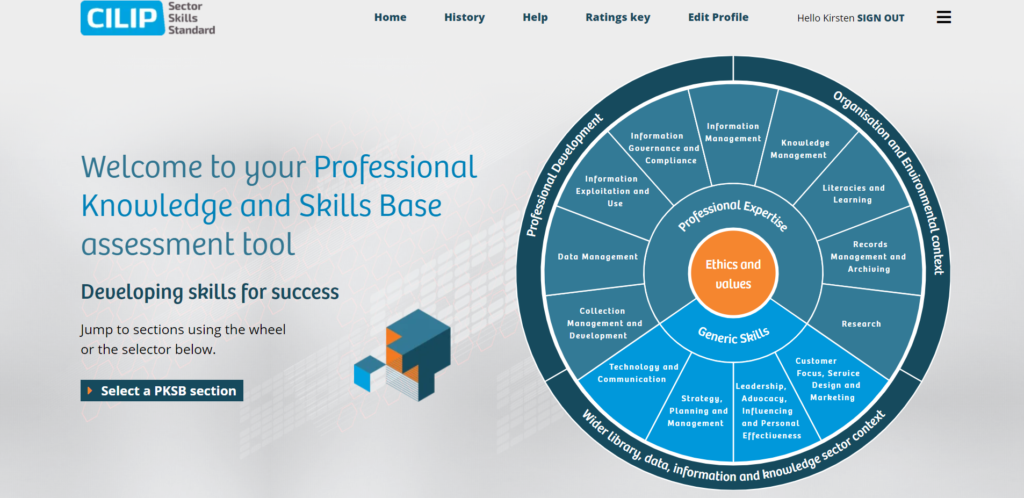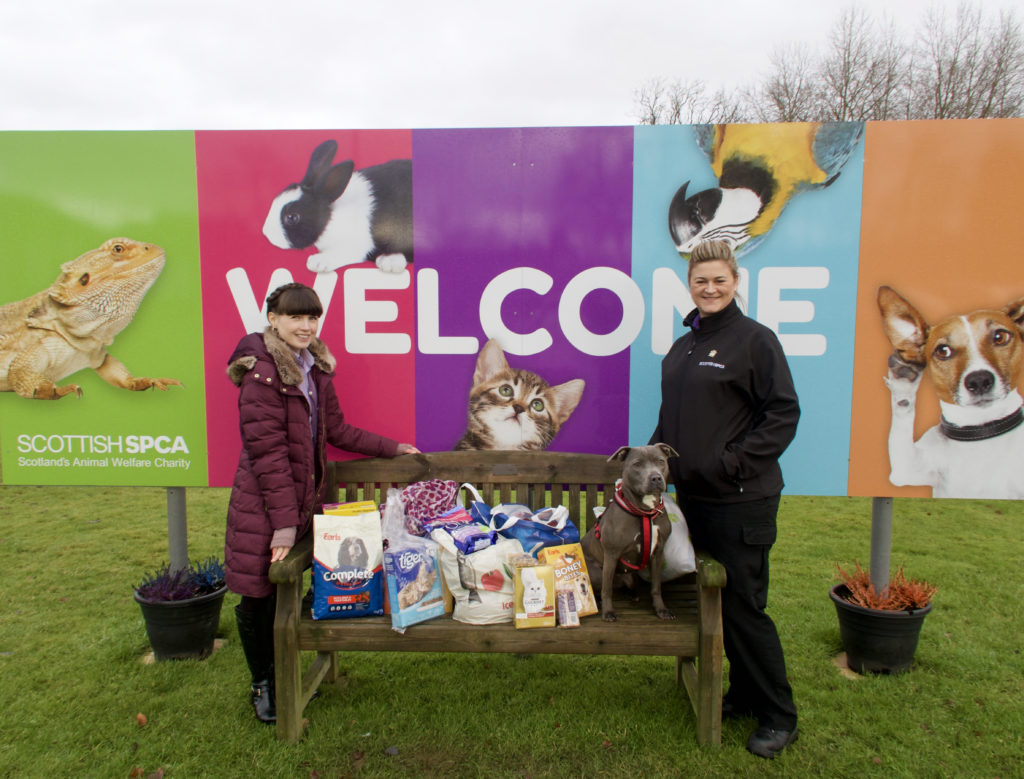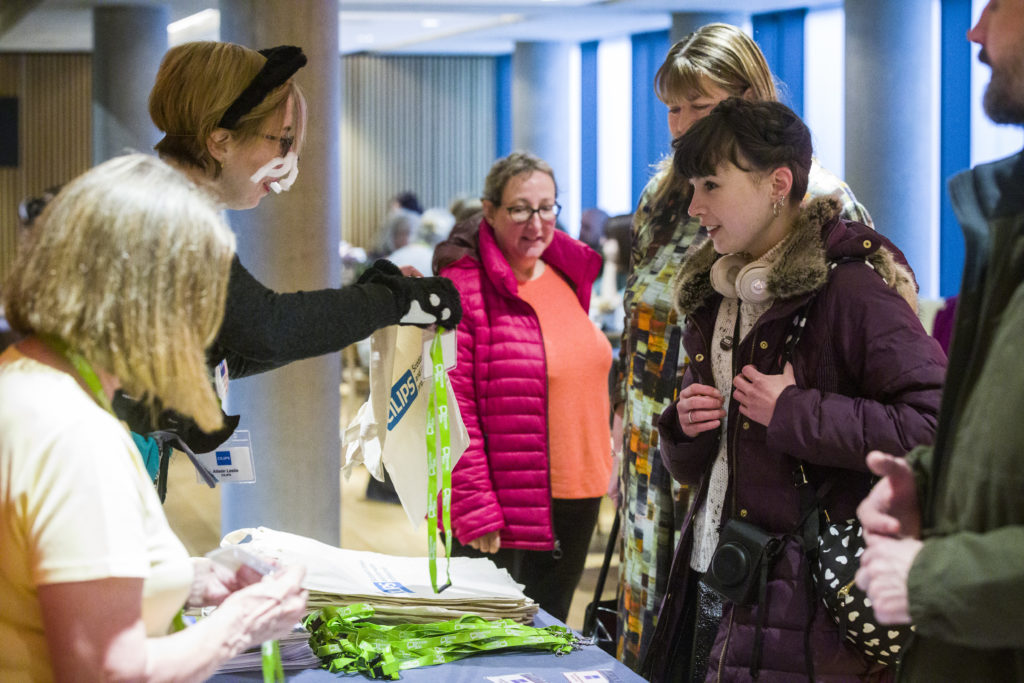The Power of Professional Registration
Category: Blog, News, Professional Development
As many CILIPS members will already be aware, this week marks the launch of the much-anticipated update of the PKSB – the Professional Knowledge and Skills Base that lies at the heart of the Professional Registration process. Featuring new areas for media literacy, health literacy, reflective practice, events programming, data management and more, the PKSB remains the go-to tool for every library, knowledge and information professional who wants to enhance their skill set and show serious commitment to their career. To celebrate its launch, I’d like to share the profoundly positive difference that the path to Professional Registration (PR) has made to my career – best of all, it’s a journey that’s still ongoing!

The updated PKSB is comprehensive, easy to use and the best starting point for any professional seeking to grow and reflect on their abilities.
BC (before CILIPS), I worked for a Scottish public library service as a library assistant. Holding a masters degree in Art History, but feeling increasingly convinced that the libraries sector was the right place for me, I wanted a way to demonstrate and deepen my growing dedication to LIS, without undertaking another postgraduate degree so soon. For me, CILIP membership and PR therefore went hand-in-hand – offering the ideal opportunity to find my place within a broad, brilliantly varied sector while also supporting my personal career aims.
One aspect of PR that immediately appealed to me was its flexibility. The colourful PKSB wheel is legendary for a reason – whatever area of the sector you work in and whatever your aspirations are, there are skills and knowledge areas to focus on that will help take you where you want to be (and to repeat the reassurance that countless mentors must have given over the years, you don’t need to cover each one at once!) A fundamental attraction of library work for me is the activism that informs it – people rightly refer to libraries as the beating hearts of their local communities, but the essential work they do is often the soul and social conscience too. As I worked on my Certification portfolio, I was thrilled to realise that PR presented the chance for me to embrace and further these interests, encouraging me to reflect on what mattered most to me as a professional and in what specific areas I wanted to grow.
I submitted pieces of evidence on my library’s work to create a dementia-friendly collection, on the community impact of the animal foodbank that we ran for our local rescue and rehoming centre, and on the literally growing body of evidence that shows the benefits of incorporating nature into our library spaces. The library gardens article came to be published in CILIP’s Information Professional magazine, something I would never have dared to submit to without the steadfast encouragement of my mentor, Val Walker. The fact that several of my evidence pieces have been applicable again in our #LibrariesAreEssential and #CILIPSGoGreen campaigns says it all about the worthwhile work you do while undertaking PR. As a relative newcomer to the sector, I found that it opened up new possibilities for me to consider what a LIS role could encompass, letting the values that matter most to me shine through and suggesting new ways in which I could channel them through my career.

Compiling my Certification portfolio encouraged me to focus on the values that matter most to me in my career – from environmentalism and libraries to their role at the hearts of communities, as shown by Blantyre Library’s Scottish SPCA animal foodbank.
A related benefit of the PR journey was the unique opportunity it afforded me to make time for in-depth reflection. As librarians know perhaps better than any other profession, we live in a world that often suffers because of a ‘click first, think second’ mentality (the risks of mis- and disinformation were a strong feature of our recent campaign) and it is both rare and refreshing to come across a professional space so dedicated to critical thought. At a PR workshop I attended during the Certification process – thank you to CILIPS West Branch who organised it! – the point was emphasised to attendees that the process is not here to assess how good you are at your job. You’re a CILIPS member, we already have great faith that you are! Instead, the focus is on enhancing your skills in critical thinking, meaning that what you learn via PR not only equips you with the specifics you need to progress in your career, but also with analytical abilities that are an asset in all walks of life. Like the PKSB skills themselves, this critical reflection can be explored in many different directions: for me, it tended to be in the form of reflective writing, but I know other candidates who chose to highlight analytics, statistics, examples or case studies in their portfolios. Whether you start with Certification, Chartership or Fellowship, the chance to evaluate and enhance the work you do while strengthening your analytical skills means that PR is an investment of your time that really reaps rewards.
Speaking of my fellow candidates, a third benefit that PR brought to my career is the way that it helped me to build strong, long lasting connections with others in my professional community. A key focus of PR is developing your awareness of what is known as the ‘wider sector context’, encouraging you to research the many outstanding activities taking place in LIS workplaces beyond your own. Aspire to move into information management or intrigued by what life would be like working in a prison library? PR is your chance to investigate those interests, supported by a nationwide network of engaged and enthusiastic colleagues who are willing to help. Attendance at conferences, gatherings, seminars and training sessions, whether in person or online, are all fantastic examples of portfolio evidence: take notes throughout and consider how you can apply what you learned (even better, critically reflect on how well the implementation goes), and you will have a great foundation piece for your portfolio. Although professional networking is a daunting prospect for many of us – and never more so than after the last eighteen months – starting a conversation about PR with colleagues from any area of the sector is guaranteed to spark fascinating stories. After all, PR is a LIS rite of passage, so you’re sure to meet people at every stage of the process: from curiosity about Certification to having crossed the Fellowship finishing line (although remember Revalidation!).

Professional Registration gave me the confidence to attend cross-sector events like the CILIPS Autumn Gathering, and reflecting on the experience provided useful pieces of portfolio evidence.
Especially for early career professionals like me, having a mentor also makes a significant difference to your broader sense of belonging within the sector. To maximise flexibility, mentorship is no longer compulsory for PR today, although it is still encouraged, and I found that my mentor was a transformative force for good in my career. Throughout the process, Val went above and beyond to highlight funded conference places, journal call-outs and much more. Her kind, consistent encouragement reinforced my belief that, whatever twists and turns of life have brought you here, this profession truly is an open and welcoming space for all. That famous PKSB wheel is diverse for a good reason – every one of us has a unique perspective to contribute, and as I move on from Certification towards compiling my Chartership portfolio, I feel confident that it is the most empowering action I can take to reaffirm who I want to be as a professional.
Above all, remember that this refresh is for you – professional registration is not one-size-fits-all but a dynamic, flexible and bespoke process that will help set you on track for whatever you want to achieve. In an ever-changing world, our sector is no exception, and PR is the strongest step that any of us can take in commitment to our careers. Whether you are just starting out or already heading up an organisation, 2021 is an ideal time to make the most of what PR offers and the cutting-edge skills it can help you to develop. If you have any questions, the CILIP website has lots of invaluable advice, and we at CILIPS are always here to help. We can’t wait to celebrate your post-nominal success!
Kirsten MacQuarrie ACLIP